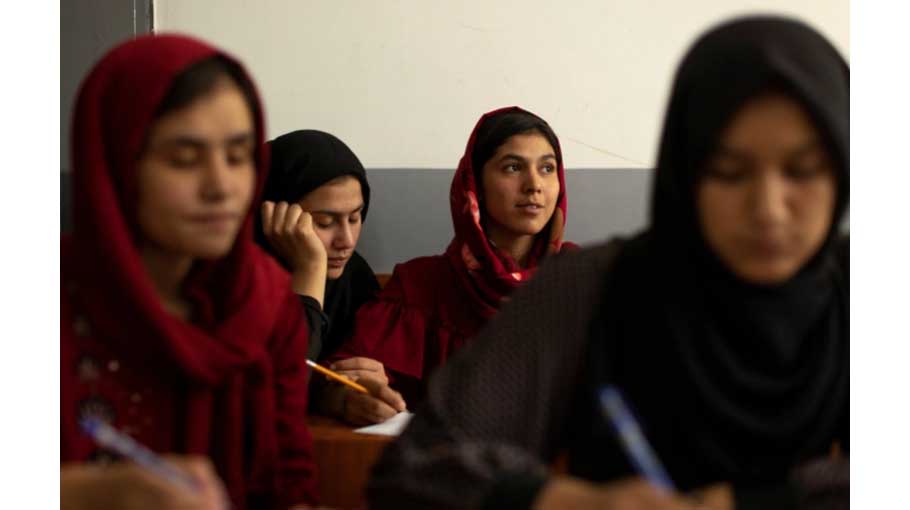Afghan girls keep learning amid Taliban curbs

Cooped up at home in Afghanistan’s Herat city, Zainab Muhammadi reminisces about hanging out with her friends in the cafeteria after coding class. Now she logs on every day to secret online lessons.
Her school shut down after the Taliban took control of the country in August. But that did not stop Muhammadi from learning.
“There are threats and dangers to girls like me. If the Taliban get to know … they might punish me severely. They might even stone me to death,” said Muhammadi, who requested to use a pseudonym to protect her identity. “But I have not lost hope or my aspirations. I am determined to continue studying,” the 25-year-old told the Thomson Reuters Foundation on a video call.
Read more: UK warns France of retaliation over fishing row threats
She is one of an estimated hundreds of Afghan girls and women who are continuing to learn – some online and others in hidden makeshift classrooms – despite the Taliban’s closure of their schools.
Fereshteh Forough, the CEO and founder of Code to Inspire (CTI) – Afghanistan’s first all-female coding academy – created encrypted virtual classrooms, uploaded course content online, and gave laptops and internet packages to about 100 of her students, including Muhammadi.
“You can be locked at home (and) explore the virtual world without any hesitation, without worrying about geographical boundaries.




